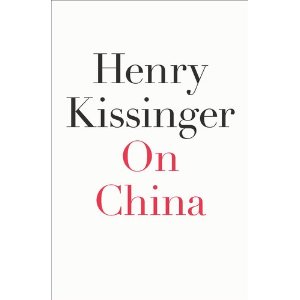On China, by Henry Kissinger
It was in the late 70’s and I was a student at Westmont College. My father had come to visit and he checked into a hotel on beach. We went to dinner at the hotel and afterward decided to take a walk on the sidewalk that ran along East Beach. It was fairly late so the traffic was light — almost non-existent as I remember. Pedestrian traffic was even lighter.
As we walked along chatting, I noticed in the distance a large black car parked on the side of the road. Two men were outside of the car. As we got closer I realized they were walking toward us. And the car was keeping pace with the men.
Long story short, one of the men walking toward us was Henry Kissinger. The man who opened China, negotiated with the North Vietnamese, and managed American foreign policy during the Cold War. A legend even then. He and a colleague, accompanied by a chauffeured limo, were having a private conversation as they strolled along the beach.
Kissinger looked up as we passed and smiled as he said, “Good evening” in that guttural German accent that is so famous. The other man never said a thing and I did not recognize him. We responded in kind, and kept on walking. It was an impressionable moment to a 19-year old who was toying with the idea of majoring in political science (I later chose not to).
Kissinger is 88-years old now and when he is gone a treasure of information will be lost. That’s why his book On China is so valuable. One can argue that his foreign policy philosophy is wrong or entirely too pragmatic, but we should never undervalue the insights Kissinger can add to any conversation about China.
And obviously China is going to be on our minds a lot for years to come. The implication of an economically vital country of 1.2 billion people is a significant factor in any geopolitical conversation. Whether friend or foe in the years to come, China is going to be a major influence in shaping American foreign policy.
That said, this book is more about the past than the future. Kissinger traces the history of modern China, and goes into particular detail on the last 100-years or so. Many of his important exchanges with Mao and dozens of other high ranking Chinese officials are recorded here. His understanding of what motivates China, what threatens China, and what soothes China are laid out in a historical context. I found it very helpful at filling in all the blanks of my own understanding of Chinese culture and world history in general.
Only toward the end of the book does Kissinger begin to speculate on the future of China. Or more accurately, what the future of Chinese-American relations might look like. He’s generally optimistic, but in keeping his pragmatic hat on he’s also very realistic. There are forces that could drive a wedge between the two countries. And there are forces that could keep us as balanced trading partners. Kissinger hopes the later happens, but he does not deny that the former could.
It’s a brilliant book and is deservedly on all the best seller lists. Buy it, read it, and then start praying that both countries are blessed with leaders of wisdom. We’re going to need it.

